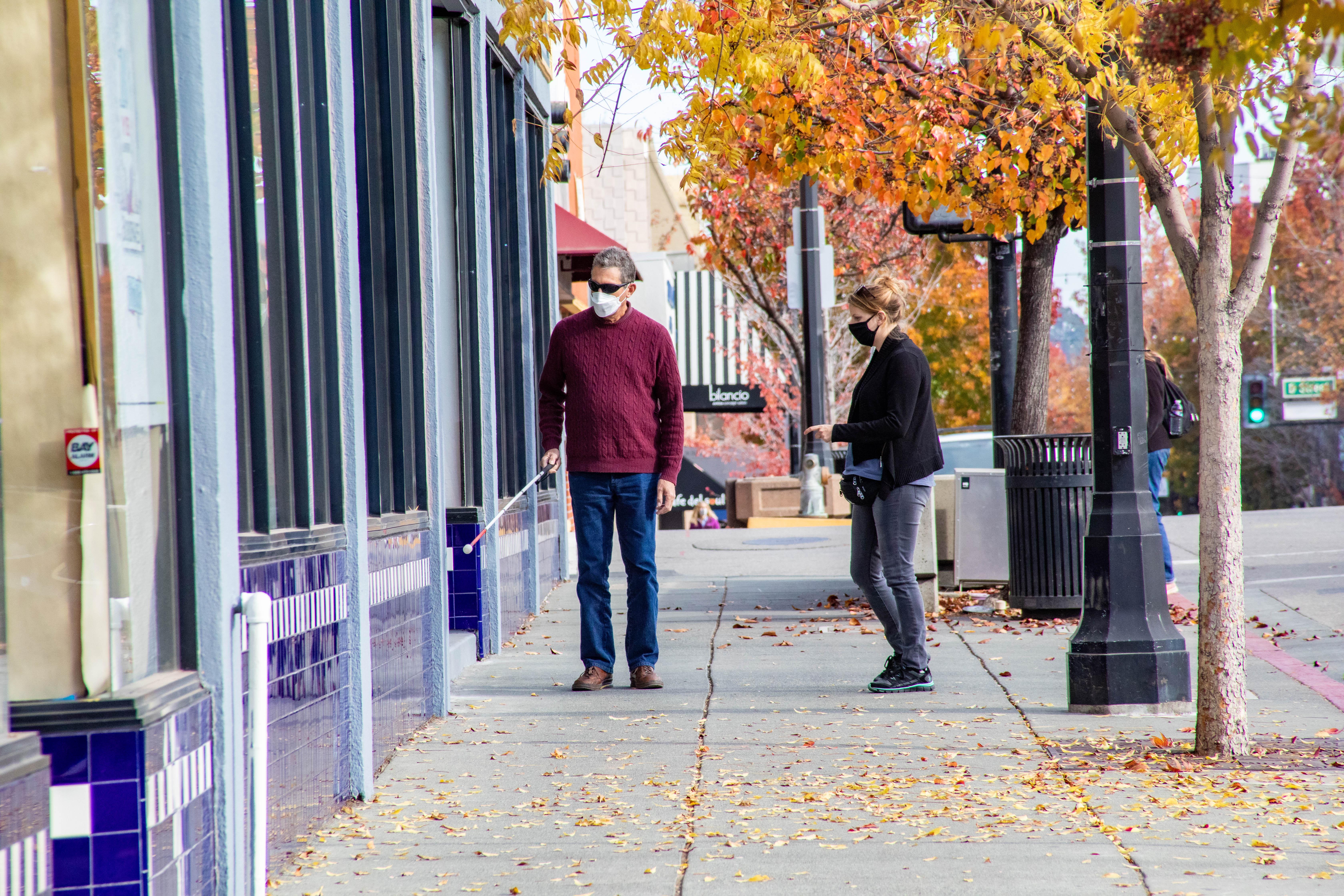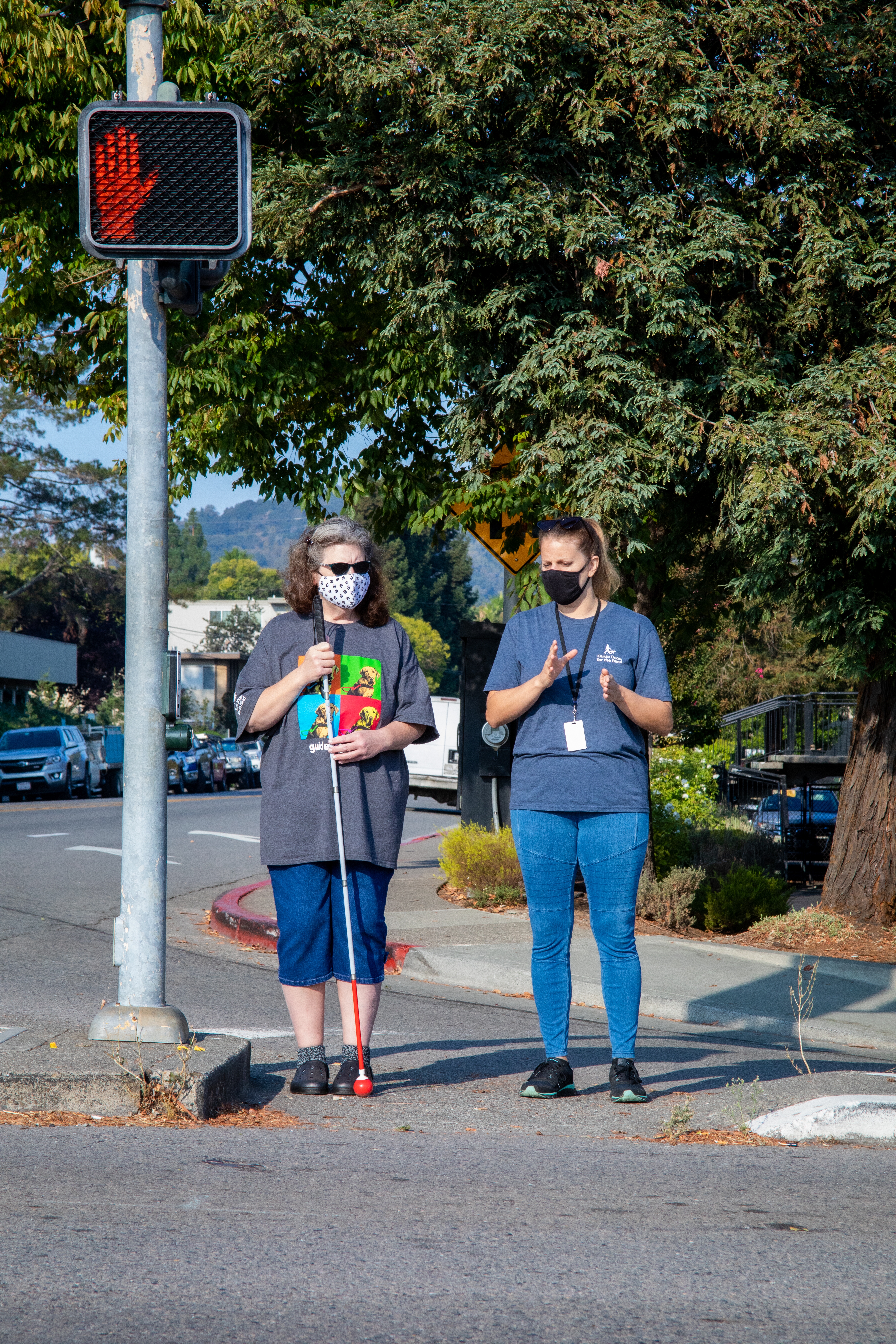Guide Dogs for the Blind is dedicated to ensuring that any qualified individuals wanting increased independence with a guide dog doesn’t face barriers preventing them from reaching their goal. One barrier that has become increasingly difficult to overcome is developing the essential orientation and mobility (O&M) skills needed for guide dog travel, and unfortunately, lack of O&M skills is the primary reason applicants are turned away from the GDB's guide dog program.
To address this gap in guide dog readiness, GDB launched the Orientation and Mobility Immersion Program. The immersion program is designed to teach O&M skills related to guide dog travel, but also includes a wide range of O&M skills training.

Since we started the program in 2016, we've discovered that many GDB graduates who are experiencing changes or deterioration in their residual vision have also benefited from the O&M training. Approximately one quarter of our clients have Retinitis Pigmentosa, (RP), a progressive retinal condition. When many clients initially start out working with a guide dog, they tend to rely on visual travel strategies, such as looking for high contrast objects, or using residual vision to help with crossing streets and remaining oriented. As their guide dogs develop into seasoned workers, clients don’t have to rely on these visual travel strategies as much and may not be aware of any changes to their vision that may have occurred over time. It’s not until their guide dog slows down or retires that they must become more reliant on their independent travel skills and then realize that their vision has changed. At that point, many realize that the visual travel strategies that used to work for them aren't effective anymore. People in this situation may have never received O&M instruction to teach them alternate techniques.
Clients dealing with this situation may experience a range of emotions including anxiety, worry, reduced confidence, and most notably, concern over their ability to qualify for a successor guide dog. GDB has a strong commitment to support our graduates through the entire guide dog experience from admissions, to retirement, to end of life decisions involving their beloved companions. The O&M immersion program means that GDB’s client support can extend to those dealing with or preparing for changes in their vision.
If you know a graduate or someone interested in receiving a guide dog who needs assistance adapting or refreshing their O&M and cane skills, would like to increase their confidence or just become a more proficient guide dog traveler then you are welcome to refer them to the program! And the best part…the program is totally free! Apply today by completing an online application.




